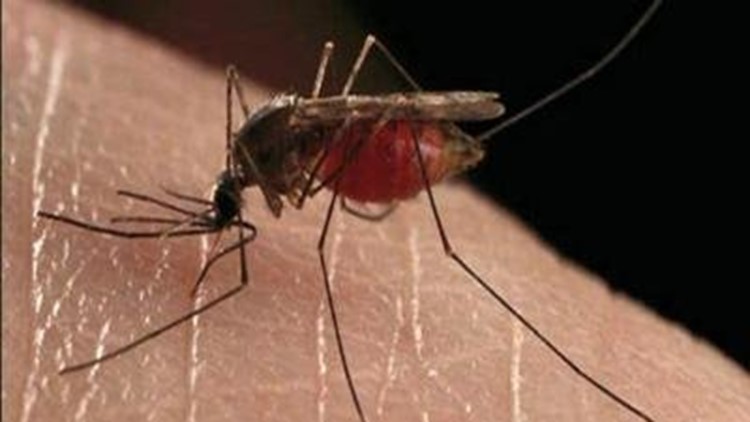WASHINGTON TOWNSHIP, Dauphin County — The first West Nile virus-infected mosquito sample of the year in Dauphin County was collected in Washington Township last week, according to the Dauphin County Conservation District.
The agency said Wednesday the sample was collected on June 14. No human cases of West Nile Virus have been reported in Dauphin County so far this year.
“The county’s WNV Control Program is increasing surveillance and control measures to reduce the mosquito population and prevent the virus from spreading,” said Dauphin County Board of Commissioners Chairman Jeff Haste, who oversees the Conservation District.
Certain species of mosquitoes carry WNV, which, when transmitted to people, can cause West Nile encephalitis, an infection that can result in an inflammation of the brain.
According to the Centers for Disease Control and Prevention, all residents of areas where virus activity has been identified are at risk of getting West Nile encephalitis.
“Mosquitoes thrive and replicate faster in warm, humid temperatures — like the weather we’re having now,” said Dauphin County commissioner Mike Pries. “Older adults and those with compromised immune systems are most likely to become ill and develop severe complications from the virus.”
The following precautions are recommended:
- Buy products with Bti (Bacillus thuringiensis israelensis)–a naturally-occurring bacteria that kills mosquito larvae but is safe for people, pets and plants–for stagnant pools of water in the lawn and garden.
- Remove any standing water in pots, containers, pool covers, tires, wheelbarrows, wading pools, roof gutters and other containers that hold water.
- Make sure screens fit tightly over doors and windows to keep mosquitoes out of homes.
- Consider wearing long-sleeved shirts, long pants and socks when outdoors, particularly when mosquitoes are most active at dawn and dusk, or in areas known for having large numbers of mosquitoes.
- Reduce outdoor exposure at dawn and dusk during peak mosquito periods, usually April through October.
- Use insect repellents according to the manufacturer’s instructions. An effective repellent will contain DEET, picaridin or oil of lemon eucalyptus. Consult with a pediatrician or family physician if you have questions about the use of repellent on children, as repellent is not recommended for children under the age of two months.
“Although the risk of contracting WNV from an infected mosquito is small, people — particularly the elderly and those with compromised immune systems — should try to reduce their risk,” said Commissioner George P. Hartwick, III.
To learn more about WNV and prevention, visit the CDC’s Web site at www.cdc.gov/westnile. For more information about Dauphin County’s WNV Control Program, contact Christopher Hooper, program coordinator, at 717-921-8100.



